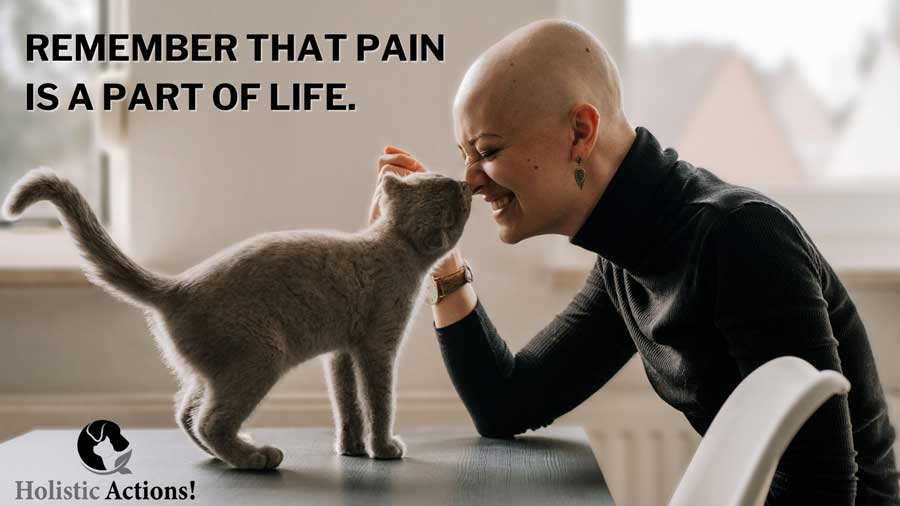Article by adjunct faculty, Dalma Heyn, Pet-Loss Grief Specialist, Psychotherapist
“Don’t complain about what was taken away; be thankful for what you were given, and how long you were given it,” – A teaching of Stoicism
“Let’s talk about Stoicism,” Dr. Jeff wrote to me one day in an email.
“You mean the ancient one—like, Marcus Aurelius?”
“Yes. And Epictetus.”
“Epictetus?” I wrote back. “Who is he?”
So, I asked Dr. Jeff to give me a little time before we talked, so I could bone up on this ancient philosophy about which I knew very little. And on Epictetus.
What did I discover? What does this ancient philosophy have to tell us about grief and grieving?
By the way, we’re not referring to the famously ultra-controlled response to pain illustrated by people we would call stoic, with a lower-case “s”. My response to a client greeting the death of a beloved pet with a stiff upper lip is usually to wonder, “What is he holding in? What is he afraid to let out—and why?” I usually say, “Come, let’s explore these difficult emotions together, so you don’t have to feign braveness.”
This, I believe, is what Dr. Jeff was onto: Stoics’ idea—their ideal, really– of achieving a better life by ridding themselves of unnecessary anxiety and pain. They urge followers to control that which is in their power to control, while completely letting go of that which is not. In many ways, this is like Zen Buddhism—strange as that seems—in that the goal is to achieve a contentment in life that can only come from within. A Zen practice uses meditation to achieve inner harmony; A Stoic practice uses a variety of coping strategies to achieve it: Daily gratitude. Planning ahead for negative events.
On the podcast called The Daily Stoic, I learned that this is called the “dichotomy of control.” You ask, “Is it up to me? Then I’ll think about it. If it is NOT up to me, then I won’t!” Solve a problem if you can, let it go entirely if you cannot.

The idea is that life throws you many curveballs that you can’t control. But Stoics believe your decisions, actions, thoughts, and even emotions are up to you — and that you can choose how to respond to these curveballs. And as Epictetus, who turns out to have once been a slave but who became one of Stoicism’s first great leaders, put it (and I paraphrase):
“Circumstances sometimes cannot be changed. But your mind can. Which means you have power.”
Okay, so how does this power inform our response to pet-loss grief? I believe it is this: We know our companion animals have shorter lifespans than we do (that’s the we-cannot-control part). So, we should plan on the inevitability of the death of our pets–because it’s our lack of preparation that makes terrible surprises hurt even more. Stoics teach us to face, process and deal with grief immediately, instead of running from it with delaying tactics, like blame and guilt and anger.
Find the positive in a pet’s death if you can, but then sit with your pain and accept it, remembering that it’s a part of life.
What do you think about this interesting strategy? My next blog will be about whether I believe this equanimity can possibly be achieved without years of practice. I have many thoughts on this….and I hope you do, too. Please write to me at [email protected] if you want to weigh in! I always welcome your input.
Until next time….
Dalma
Click here to see all Dalma’s posts.

Dalma Heyn, MSW, LMSW, is a therapist, author and certified pet-loss grief specialist, who lives at the Connecticut shore with her scruffy, fluffy Havanese, Luna. Dalma graduated from The University of Southern California with a degree in psychology and English, and from New York University with a MA degree in social work.
Speaking and writing about human intimate relationships for so many years brought her to another kind of intimate relationship: the one we have with our companion animals. Dalma finds that many aspects of this love are woefully underestimated, for reasons she discusses here with other passionate readers on this site. Her mission is to shed light on this important reciprocal love–which she believes can transform the inevitable loss of our pets from an unbearable experience to a meaningful and healing one. Dalma is now available for consultations for our members.
